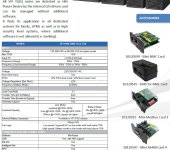Soldato
I've moved recently to a lovely house on a lake. It is nice, I even get FTTP!
Unfortunately, I get regular power outages when a tree falls and takes out a powerline somewhere locally. I want to buy a UPS for myself. I also don't want to spend a fortune on this.
I want to be able to do the following :
-Power a NAS long enough for it to shutdown safely
-Power my router for as long as possible. When the power goes then even mobile connectivity dies. Is powering a router for several hours feasible/practical?
-Maybe power my main PC for long enough for it to shutdown but I'm more inclined to sacrifice this in order to keep the router up longer
I've seen loads of UPC devices but I really just haven't a clue what I should be looking for.
Unfortunately, I get regular power outages when a tree falls and takes out a powerline somewhere locally. I want to buy a UPS for myself. I also don't want to spend a fortune on this.
I want to be able to do the following :
-Power a NAS long enough for it to shutdown safely
-Power my router for as long as possible. When the power goes then even mobile connectivity dies. Is powering a router for several hours feasible/practical?
-Maybe power my main PC for long enough for it to shutdown but I'm more inclined to sacrifice this in order to keep the router up longer
I've seen loads of UPC devices but I really just haven't a clue what I should be looking for.


